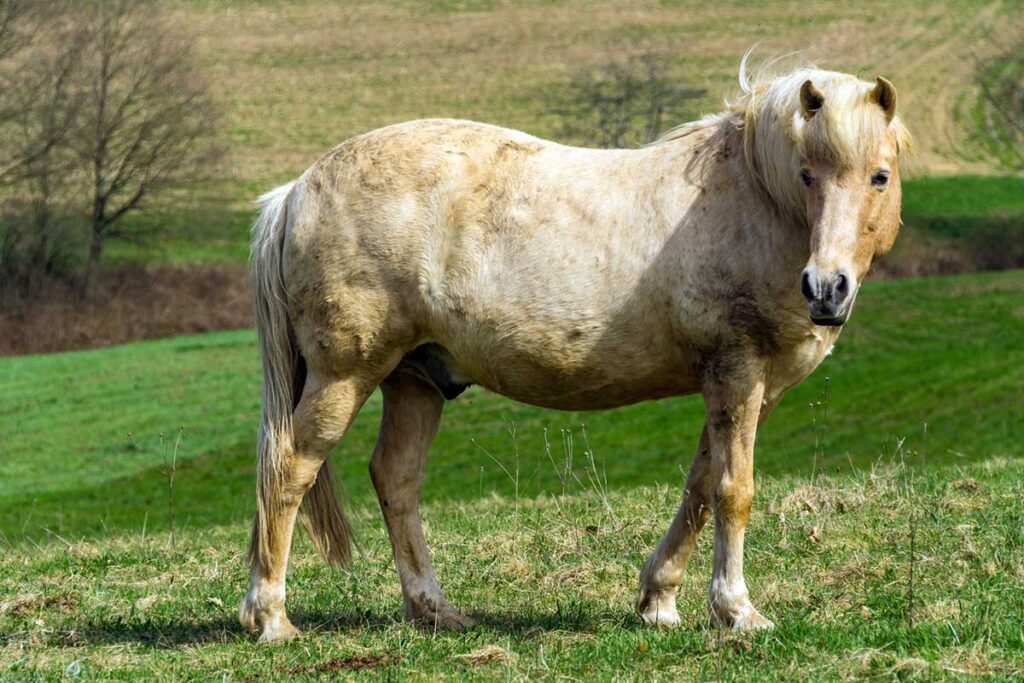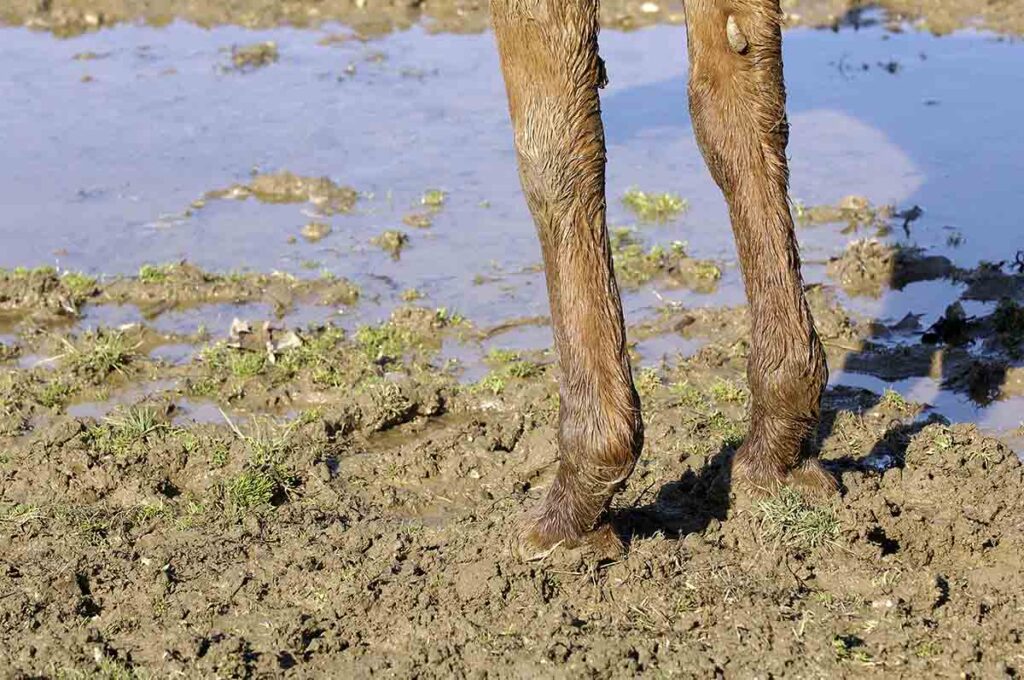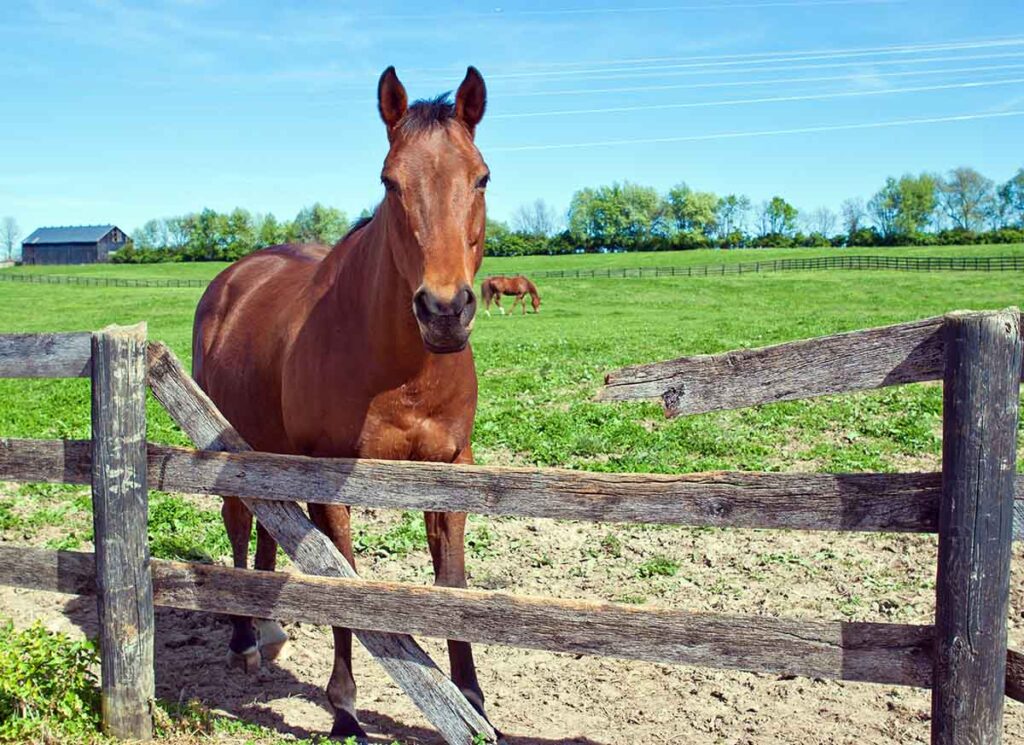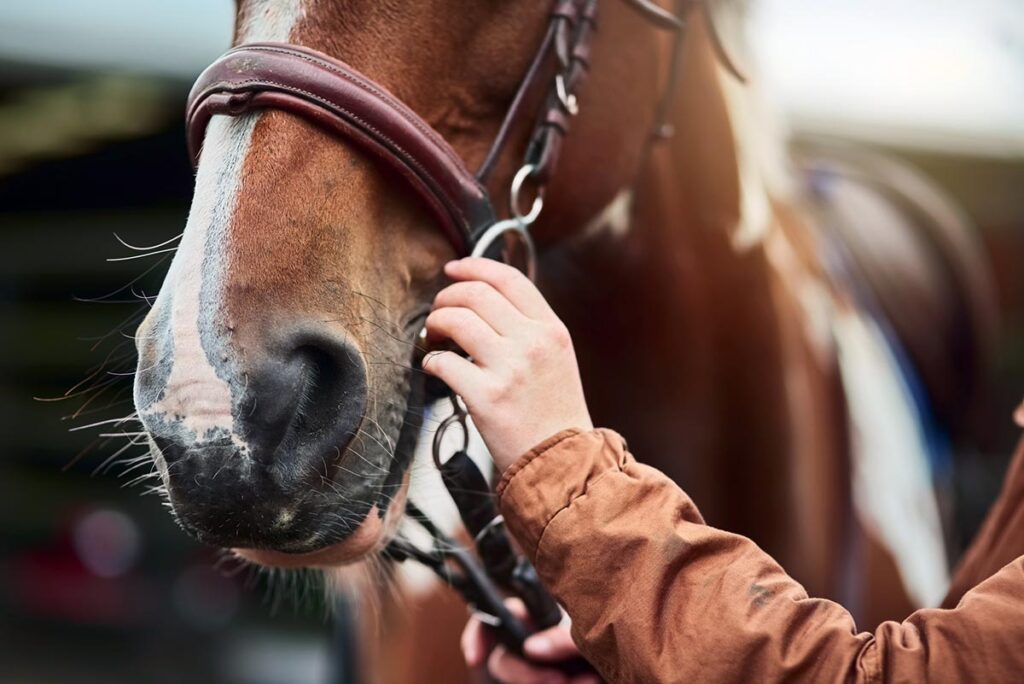For budgeting purposes—and to make the cost of horse ownership a bit more palatable—it helps to understand how much you’ll likely spend on your equine habit per month. Horse costs per month vary widely depending on where you live and the level of care your horse receives. Once you determine how much the basics—such as farriery, feed, and housing—are going to cost you per month, you can expect them to remain fairly consistent. In this article, we’ll break down the typical expenses associated with horse ownership so you can plan accordingly.
Monthly Equine Housing Costs
One of the biggest expenses associated with owning a horse is housing. If you decide to board your horse on someone else’s property, pasture board—living in a field, without a stall—is a more affordable option. Some barn managers offer partial- or self-care board, meaning you are responsible for aspects of your horse’s daily care, such as feeding, stall cleaning, and buying things like grain and shavings. Full-care board is the most comprehensive option and typically includes a stall, feed and basic supplies, and all daily care. Here are some estimated ranges for each:
- Pasture board: $100-500/month
- Partial- or self-care board: $200-600/month
- Full-care board: $500-$2,000-plus/month
Board costs are higher in certain regions of the country than others, such as near major metropolitan areas where land is at a premium. Facilities that offer lots of amenities and higher-quality care typically come with a higher price tag. If you choose to build your own barn or fence in an area of your property for your horse, you can save money on monthly expenses, but you’ll still encounter upfront costs associated with construction and ongoing maintenance.
Monthly Feed Costs
A horse’s nutritional needs vary depending on breed, size, activity level, and other factors. They require 1.5-2% of their body weight in forage per day, which means a 1,000-pound horse will consume 15-20 pounds of hay and grass daily. Expect to pay $5-15 per 50-pound bale of hay—higher if you’re feeding alfalfa or during a drought period and lower if you’re buying in bulk or by the ton.

Horses that need more nutrients and calories than hay alone can provide will need a concentrate feed or a ration balancer. These products typically come in 50-pound bags, and the amount your horse consumes each day depends on the feeding directions on the label, as well as your horse’s life stage and activity level. Amounts generally range from 5-10 pounds per day, split between multiple meals.
If hay and grain still don’t meet your horse’s individual nutrient needs, or if he needs nutritional support for other conditions, you might want to add one or more supplements to his daily ration. These products range from basic multivitamins to joint and digestive supplements. Here are estimated horse feed costs:
- Hay: $50-100-plus/month
- Concentrate or ration balancer: $50-100/month
- Supplements: $30-90-plus/month
To ensure your horse is getting a balanced diet and you’re not overspending unnecessarily on grain and supplements, talk to your veterinarian or an equine nutritionist.
Training and Competition Costs
Training costs will vary depending on your goals for your horse and the level of instruction you require. New horse owners, however, might benefit from working with a professional trainer, either by taking regular riding lessons or having that individual teach your horse appropriate skills and behavior. The cost of lessons can range from $45 for a basic group lesson to upward of $100 for a private lesson with a reputable trainer.
If you plan to compete with your horse, expect to pay a couple of hundred dollars for a one-day, local show up to a couple of thousand dollars for a weeklong, nationally sanctioned event. Spending a day or a weekend riding in a clinic with an in-demand trainer might cost anywhere from $100 to well over $300. Here are estimated ranges for training and competition:
- Lessons: $200-1,000/month
- Training rides: $500-1,500/month
- Clinics: $100-$350-plus/weekend
- Horse shows: $200-$3,000-plus/month
Monthly Veterinary Costs

Staying up to date on your horse’s care and preventive measures such as vaccination and parasite control can minimize your monthly veterinary costs. Some months you won’t have to pay for any veterinary care at all!
Routine equine veterinary costs—which should include vaccination, dental exams, deworming, and wellness exams—might add up to around $600 per year. So for the sake of budgeting, set aside about $50 per month for vet bills. Set aside another $500-1,500 in an emergency horse fund in the event of an unexpected surgery or health scare.
An equine insurance policy can cover some of these costs, but it too comes at a price. Depending on the extent of coverage and value of your horse, insurance can cost anywhere from $200 to more than $2,000 a year. Here are estimated ranges for your horse’s veterinary costs if you divide them up by month:
- Preventive care: ~$50/month
- Insurance: $15-150/month
Monthly Farrier Costs
Horses require regular hoof care from a skilled farrier to stay sound and perform at their best. Some horses only need to have their hooves trimmed every four to eight weeks. Others wear shoes and will need them reset in addition to trimming. The more frequent farrier visits and specialized care your horse requires, the more you can expect to pay. Here are estimated ranges for hoof care every four to eight weeks:
- Trimming: $45-80 per visit
- Front shoes: $90-150 per visit
- Front and hind shoes: $100-300 per visit
Supplies and Maintenance Costs

Your horse will require a variety of supplies, including tack, grooming tools, blankets, fly spray, and stable equipment. These costs can add up quickly, especially if you’re starting from scratch. If you keep your horse on your own property, also be prepared to budget for stall cleaning, bedding, and maintenance such as fence repairs and upkeep. Items you might find yourself purchasing monthly, depending on the season, include:
- Fly spray
- Tack cleaner and conditioner
- Hoof topicals like hardeners or conditioners
- First-aid items such as Vetrap or disposable gloves
- Shampoo, conditioner, and/or detangler
- Treats
- Salt blocks
- Stall bedding
Take-Home Message
Owning a horse is a significant investment of both time and money, but if you’re like many of us, the rewards outweigh the costs. By being aware of and planning for horse costs per month, you can provide the best possible care for your horse while maintaining financial stability.
Related: What Does it Cost to Own a Horse?
Are you enjoying this content? Sign up for My New Horse’s FREE newsletter to get the latest horse owner info and fun facts delivered straight to your inbox!








